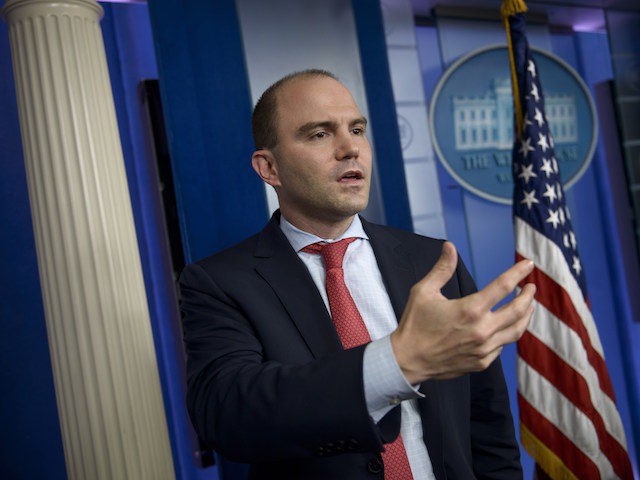The Obama administration has linked U.S. law enforcement with their Cuban counterparts in a partnership “on counternarcotics, counterterrorism, legal cooperation, and money laundering,” according to a statement from the U.S. embassy in Havana.
Deputy National Security Advisor Ben Rhodes — chief proponent of the Joint Comprehensive Plan of Action (JCPoA), or the Iran nuclear deal — attended the signing of the “U.S.-Cuba Law Enforcement Memorandum of Understanding (MOU)” in Havana. Rhodes has previously told reporters he and the administration are looking to bind the administration of incoming President Donald Trump, who campaigned on a hardline anti-communist platform, into as many agreements with Cuba as possible.
“I think what we were trying to do is to create as much momentum for the policy so as to make it irreversible, to enlist as many stakeholders as we could in the policy so as to make it irreversible,” USA Today quotes Rhodes as saying.
The announcement did not specify how the United States would cooperate with Cuba in these avenues, though the subsequent maritime agreement indicates that the Coast Guard will work with their Cuban counterparts to monitor any potential drug or arms trafficking in joint waters. It also did not mention whether the agreement will allow the United States to use legal avenues to bring a variety of criminals the Cuban government protects to justice, including “New Jersey cop killers, Black Panther hijackers and Puerto Rican terrorists,” according to USA Today. President Obama recently commuted the sentence of a high-level Puerto Rican terrorist responsible for planning the planting of over 130 bombs throughout the United States.
The decision to cooperate with Cuba on counterterrorism measures arrives a little less than two years after the President removed Cuba from the State Department’s State Sponsors of Terrorism list, despite Cuba enacting no changes in its foreign policy. Cuba remains the home of most of the senior leadership of the Revolutionary Armed Forces of Colombia (FARC), a Marxist terrorist group responsible for over 220,000 deaths and the disappearance of another 100,000 people. Havana also hosted peace talks between the FARC and the Colombian government, which resulted in a peace deal widely unpopular among Colombians from the rural areas most targeted by the FARC.
In addition to its ties with the FARC. Multiple reports in recent memory have linked dictator Raúl Castro with operations favoring the Shiite jihadist terror organization Hezbollah. The Cuban government reportedly funded an elaborate scheme to grant Hezbollah terrorists government-issued Venezuelan passports, which would allow them to move more freely throughout the Western Hemisphere. Documents released in a leaked collection known as the “Panama Papers” linked Cuba to the passport scheme in early 2016. The UK-based newspaper Asharq Al-Awsat also published a report last year, citing Western security and intelligence sources, linking Cuba to attempts to grant Hezbollah terrorists a greater ability to freely travel in the region.
Emails from the account of Hillary Clinton campaign chairman John Podesta released by the organization WikiLeaks last year revealed that an intelligence report had reached the former secretary of state warning that Hezbollah had established a base in Cuba.
The Castro regime enjoys extremely friendly relations with the Islamic Republic of Iran, the world’s leading state sponsor of terrorism and key financier of Hezbollah. Castro also enjoys alliances with governments tied to Hezbollah around the world, such as that of Syria, Venezuela, and formerly the leftist governments of Argentina and Brazil.

COMMENTS
Please let us know if you're having issues with commenting.